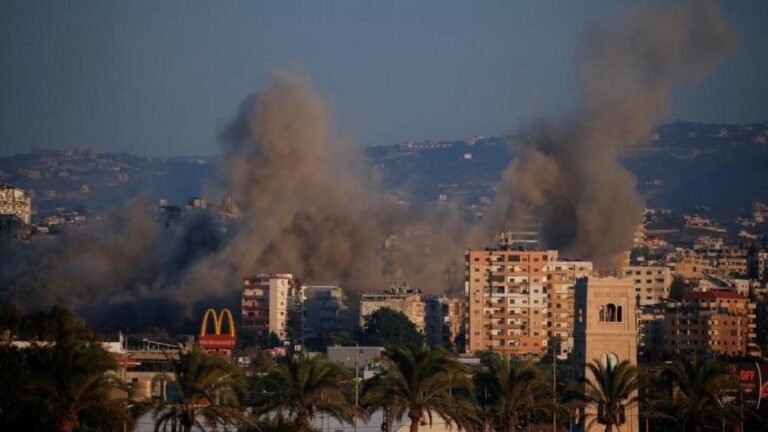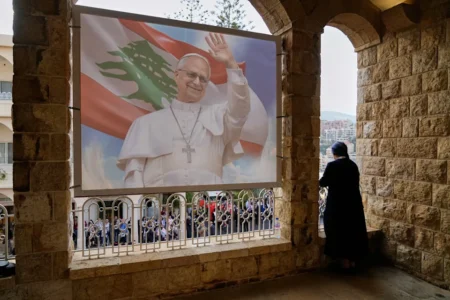Israel strikes Lebanon days after Iran ceasefire, reigniting the Israel Lebanon Conflict and causing civilian casualties.
The Israel Lebanon conflict has once again turned deadly, just days after a ceasefire was declared between Israel and Iran. The region had seen 12 straight days of conflict, bringing fear and unrest to the Middle East. After the ceasefire was announced on Tuesday, many hoped the tension would ease. However, things quickly took a turn for the worse.
Reports confirm that on Friday, Israel launched a major air assault on several areas in southern Lebanon. One woman was killed, and nearly 15 others were wounded in the attacks. The strikes came as a surprise, especially after the recent calm that followed the ceasefire.
Israel targeted multiple towns and natural areas using concussion rockets. Areas hit include Ali al-Taher, Kfar Tibnit, and parts of the Nabatyeh al-Fawqa region. These regions include forests and hills, which saw explosions and fires following the strikes.
Just ten minutes after the first wave of bombings, Israeli aircraft returned and dropped more bombs in the same zones. This second attack increased fear among the locals, many of whom had already begun to rebuild their lives after years of repeated violence.
In a public statement after the attack, the Israeli military claimed it had struck a Hezbollah facility in Mount Shafi in southern Lebanon. According to them, the target was being rebuilt for future use by the group. However, Hezbollah has not yet responded to these claims or the bombing itself.
This is not the first time such attacks have taken place. Israel began operations in Lebanon in October 2023. What started as smaller cross-border incidents grew over time. By September 2024, the situation had escalated into full-scale conflict.
Official reports state that over 4,000 people have died since the fighting began. Another 17,000 have been injured, and about 1.4 million have been displaced from their homes. Many of these people are still living in shelters or makeshift camps without proper access to food, clean water, or medicine.
Last year, in November 2024, Israel and Lebanon signed an agreement to stop the fighting. As part of the deal, Israel agreed to pull its troops from southern Lebanon by January 26, 2025. However, due to delays and objections from Israeli leadership, the withdrawal deadline was pushed to February 18.
Even with this extension, Israel did not complete the pull-out. Instead, the Israeli army kept a presence at five border checkpoints in southern Lebanon. Many in the international community have called this a violation of the peace deal.
Lebanese officials claim that since the ceasefire, Israel has broken the agreement nearly 3,000 times. These violations include airstrikes, ground assaults, and surveillance overflights. They say that at least 208 people have been killed in these attacks, and over 500 others have been injured.
The latest round of attacks has caused fresh concern among nearby nations. Many fear that this renewed violence may grow into a much larger regional conflict. Civilians in southern Lebanon are once again living in fear, unsure of what tomorrow may bring.
Political experts believe that Israel’s recent actions are linked to its recent conflict with Iran. After facing criticism for its handling of the Iran conflict, Israeli leadership may be trying to reassert power through shows of military strength elsewhere.
Residents and aid workers on the ground say the bombings have destroyed homes, farmlands, and infrastructure. Relief efforts are underway, but the situation remains tense and unstable.
The growing toll on civilians highlights the urgent need for diplomatic solutions. Both regional and global powers are calling for restraint and renewed talks to prevent further loss of life. As long as military actions continue, the cycle of violence and suffering is unlikely to end.
With Israel refusing to fully withdraw from Lebanon, the possibility of lasting peace remains uncertain. Calls for international mediation have grown louder, but so far, no new talks have been scheduled.
As the Israel Lebanon conflict intensifies, the world watches with concern. The future of peace in the Middle East may depend on how this situation is handled in the coming weeks.







